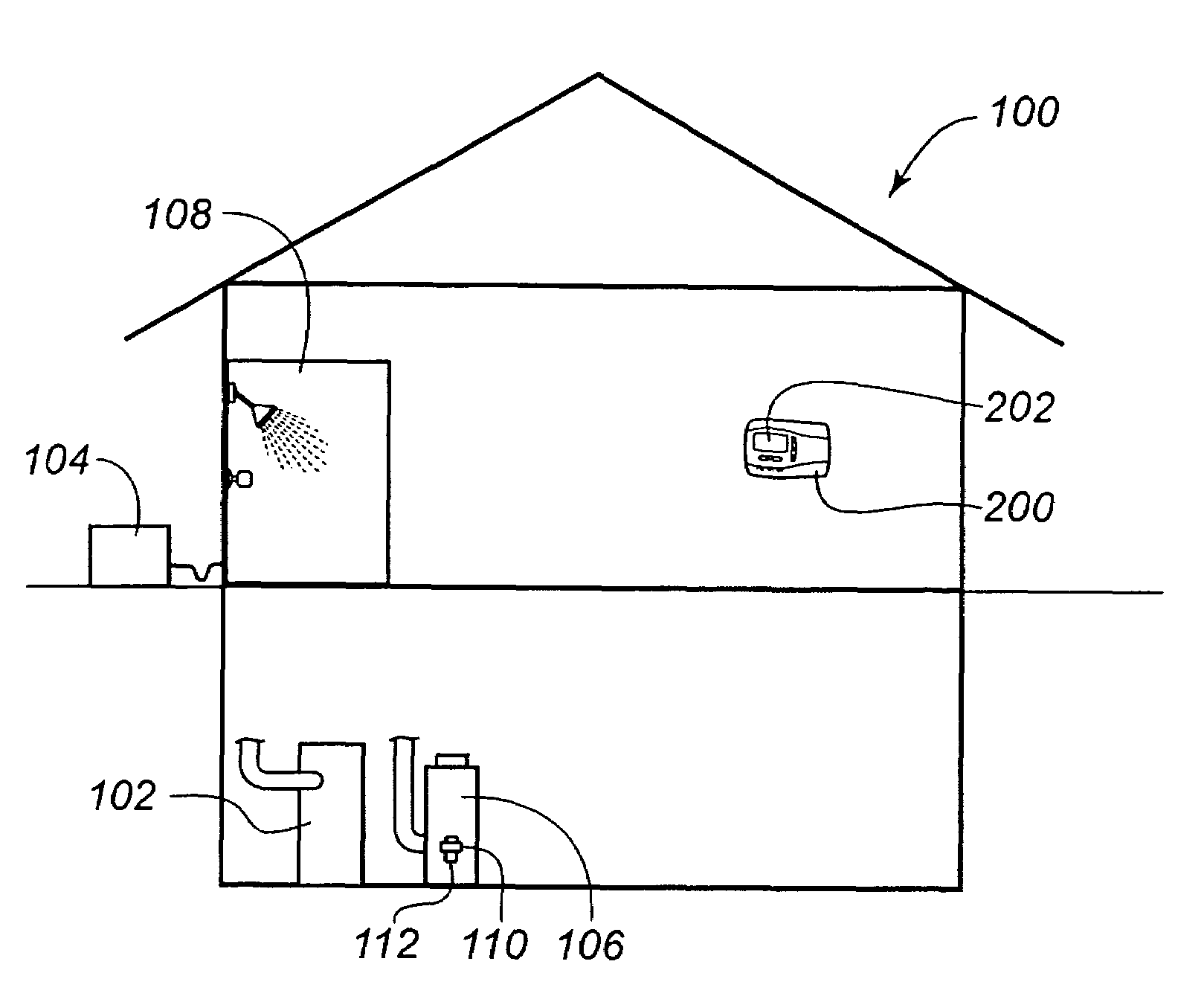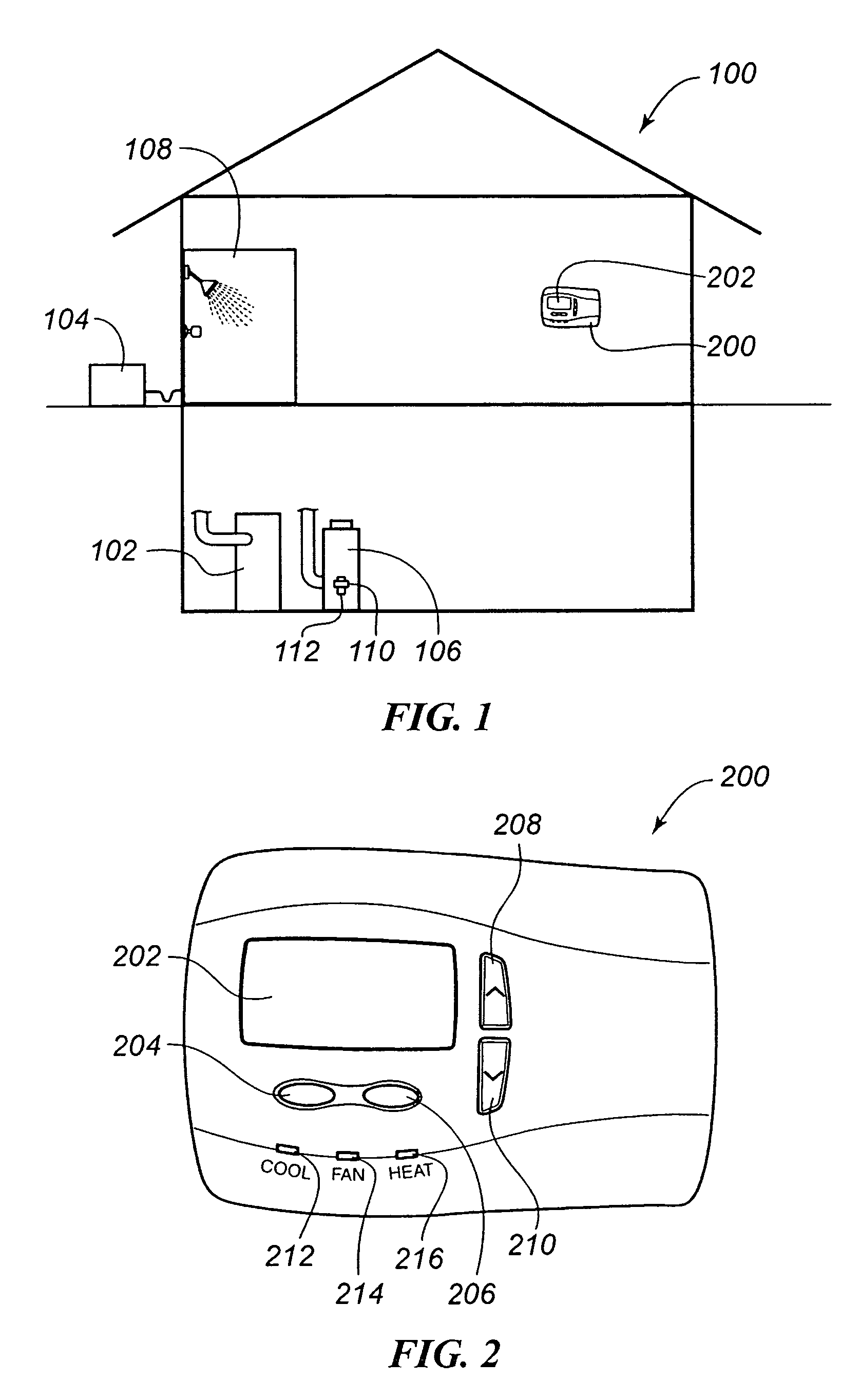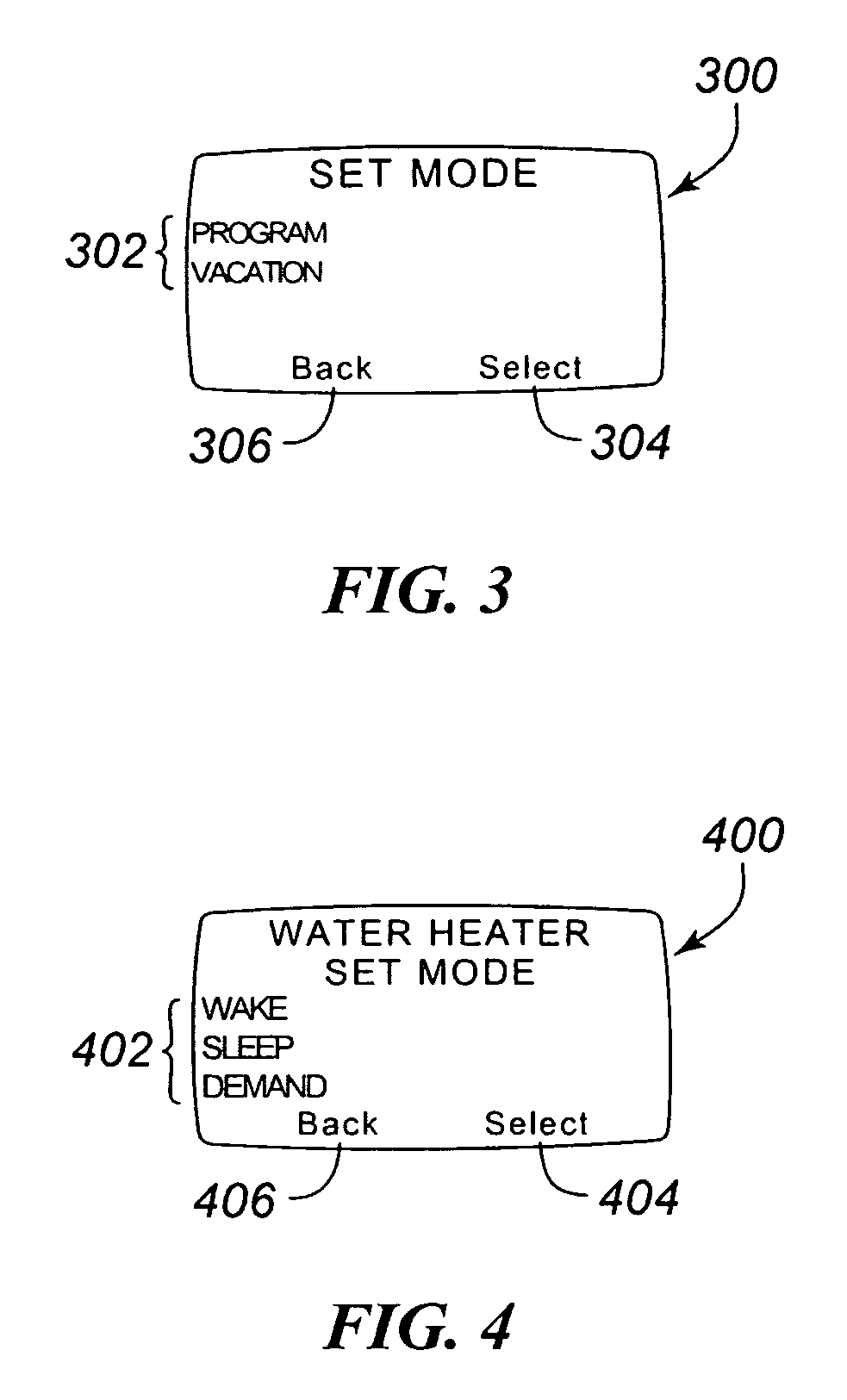System and method for controlling appliances and thermostat for use therewith
a technology for thermostats and appliances, applied in the field of remote control of appliances, can solve the problems of many consumers not taking the time to even manually lower the temperature of the thermostats or put them into vacation, and many consumers never think to set the water heater into this mode, so as to reduce reduce the cost of ownership. , the effect of reducing the energy consumption of the appliances
- Summary
- Abstract
- Description
- Claims
- Application Information
AI Technical Summary
Benefits of technology
Problems solved by technology
Method used
Image
Examples
Embodiment Construction
[0020]FIG. 1 illustrates a simplified home environment 100 into which an embodiment of the system of the present invention finds particular applicability. However, one skilled in the art will recognize that the system of the present invention is not limited to a home environment, but may also be installed in a commercial environment, etc. This typical home environment 100 includes an intelligent thermostat 200. As is typical, the thermostat 200 controls heating of the home environment 100 by the furnace 102, and possibly cooling of the home environment 100 by the air conditioning system 104. The interface to both the furnace 102 and the air conditioning system 104 is typically pre-wired in the home environment 100, although the communications control from the thermostat 200 to the furnace 102 and to the air conditioning system 104 may also be wireless as desired by providing receiver / transmitter circuitry in the furnace 102 and air conditioning system 104. Similar receiver / transmitt...
PUM
 Login to View More
Login to View More Abstract
Description
Claims
Application Information
 Login to View More
Login to View More - R&D
- Intellectual Property
- Life Sciences
- Materials
- Tech Scout
- Unparalleled Data Quality
- Higher Quality Content
- 60% Fewer Hallucinations
Browse by: Latest US Patents, China's latest patents, Technical Efficacy Thesaurus, Application Domain, Technology Topic, Popular Technical Reports.
© 2025 PatSnap. All rights reserved.Legal|Privacy policy|Modern Slavery Act Transparency Statement|Sitemap|About US| Contact US: help@patsnap.com



